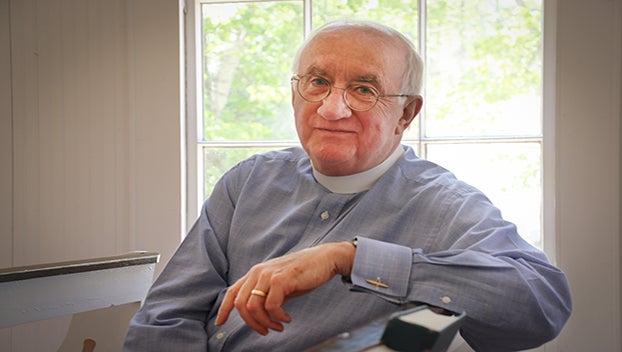Freedom, Not License
Published 3:40 pm Thursday, July 7, 2022
|
Getting your Trinity Audio player ready...
|
By Ann-Marie Montague
For this Sunday’s liturgy our organist AT Zion Episcopal Church will play “Lift Every Voice and Sing” before our gospel reading of the Good Samaritan. This hymn is a hopeful appeal for liberty, set against the religious invocation of God and the promise of freedom-two major pillars of our American dream.
The promise of freedom.
As Americans what does this phrase mean to us here in Washington, North Carolina in 2022? Does it mean filling up our vehicles’ gas tanks without taking out personal loans to pay for it? Does it mean I am free to do whatever I want to do? Freedom. Is this really a God-given right?
During my years in seminary, we would sit around and chew the proverbially theological “fat”. One topic that always seemed to rise to the occasion was free will. We kept asking the question: if God had it to do all over again would God give humans free will? After all, look at how we have messed up things since the beginning of time with this special gift!
This rhetorical question does cause us to pause and consider not just the “if” but also how we have used this special gift, especially in our own lives.
Just as the several persons mentioned in our Good Samaritan gospel story had this same special gift of free will-to use or not to use. The robbers had the free will to rob or not to rob, but they did and nearly killed the poor victim. The “priest” who saw the victim also had this special gift of free will-to help or not to help-and we know what he chose to do. The Levite also had this gift and he also chose to not help.
Then we come to the Samaritan, a person from Samaria. He enjoyed the same exact gift of freedom of will as the priest and the Levite; however, he chose to help an injured person. Not only that, but our Samaritan also knew that he belonged to a sect that was not exactly held in great esteem by its Palestinian neighbors. Did that stop him? No way! Even though he had the same option to simply ignore the injured person, to go on his own way, he used his free will to discern what needed to be done in that situation and he helped the man regardless of his religious or cultural association.
Former President George W. Bush referred to the parable of the Good Samaritan in his first inaugural address. His words: “I can pledge our nation to a goal: when we see that wounded traveler on the road to Jericho, we will not pass to the other side.” President Bush had a dream, a vision of America as an entire land of Good Samaritans, of good people, willing to work together and help each other so that ALL people could achieve what we call “the American dream”. He challenged us Americans to care for each other, and not just here in our own country, but to care for all people of this world.
Queen Elizabeth II in her 2004 Christmas address remarked: “Everyone is our neighbor, no matter what race, creed or color. The need to look after a fellow human being is far more important than any cultural or religious differences.”
How are we to take these words and put them to best use? While we may not find a mugged and injured person along Highway 264, if we look, we can find many persons who need help, who need assistance, who need God’s love shown to them through our actions. We can help feed the hungry, clothe the naked, help those who are recently released from incarceration, help find housing for the homeless; there are so many ways we can mirror the great action of the Samaritan.
We have the free will to either accept or reject these opportunities we find all around us.
Ann-Marie Montague is a Beaufort County resident and a licensed lay preacher in the Episcopal Church.





